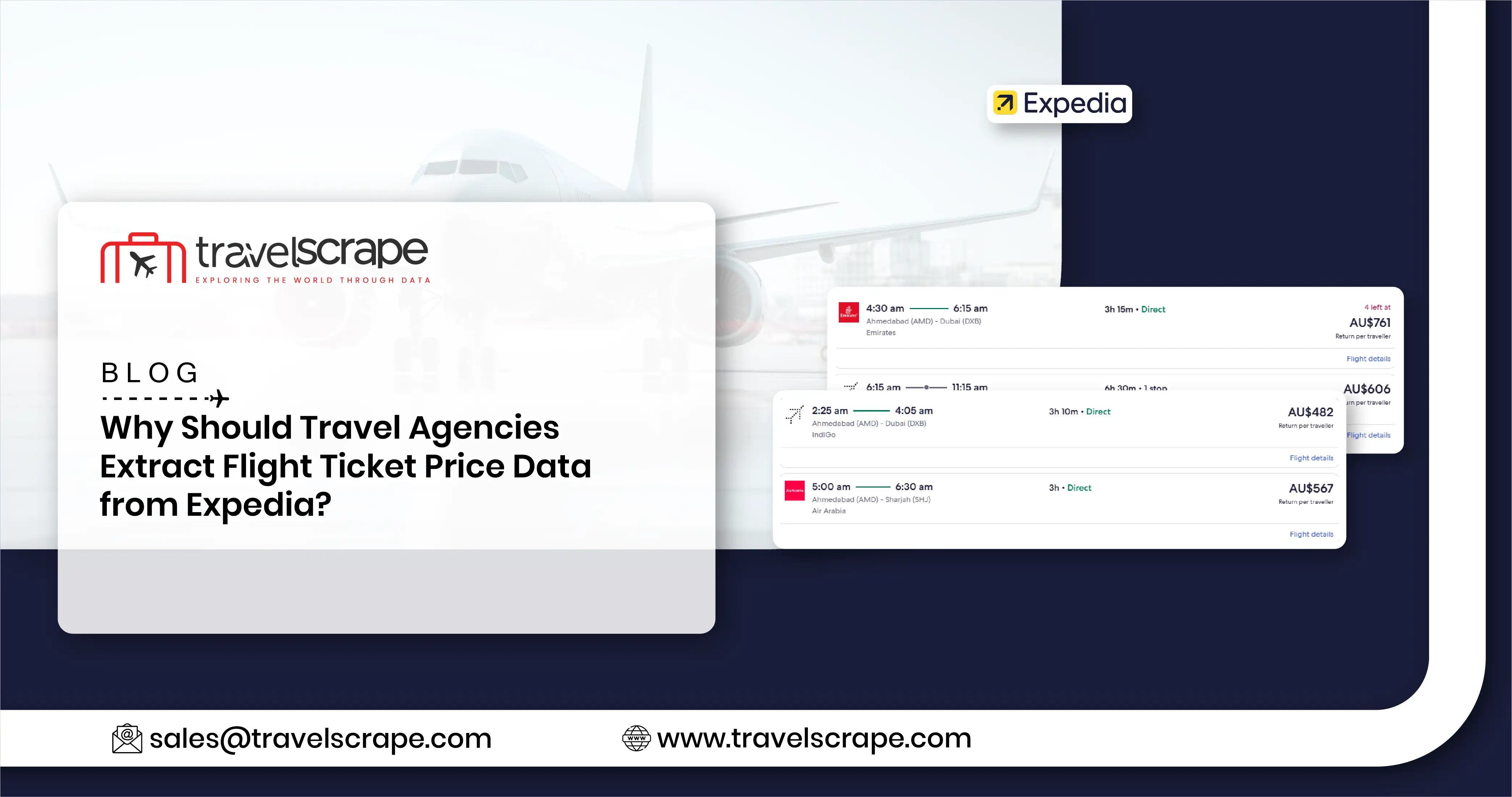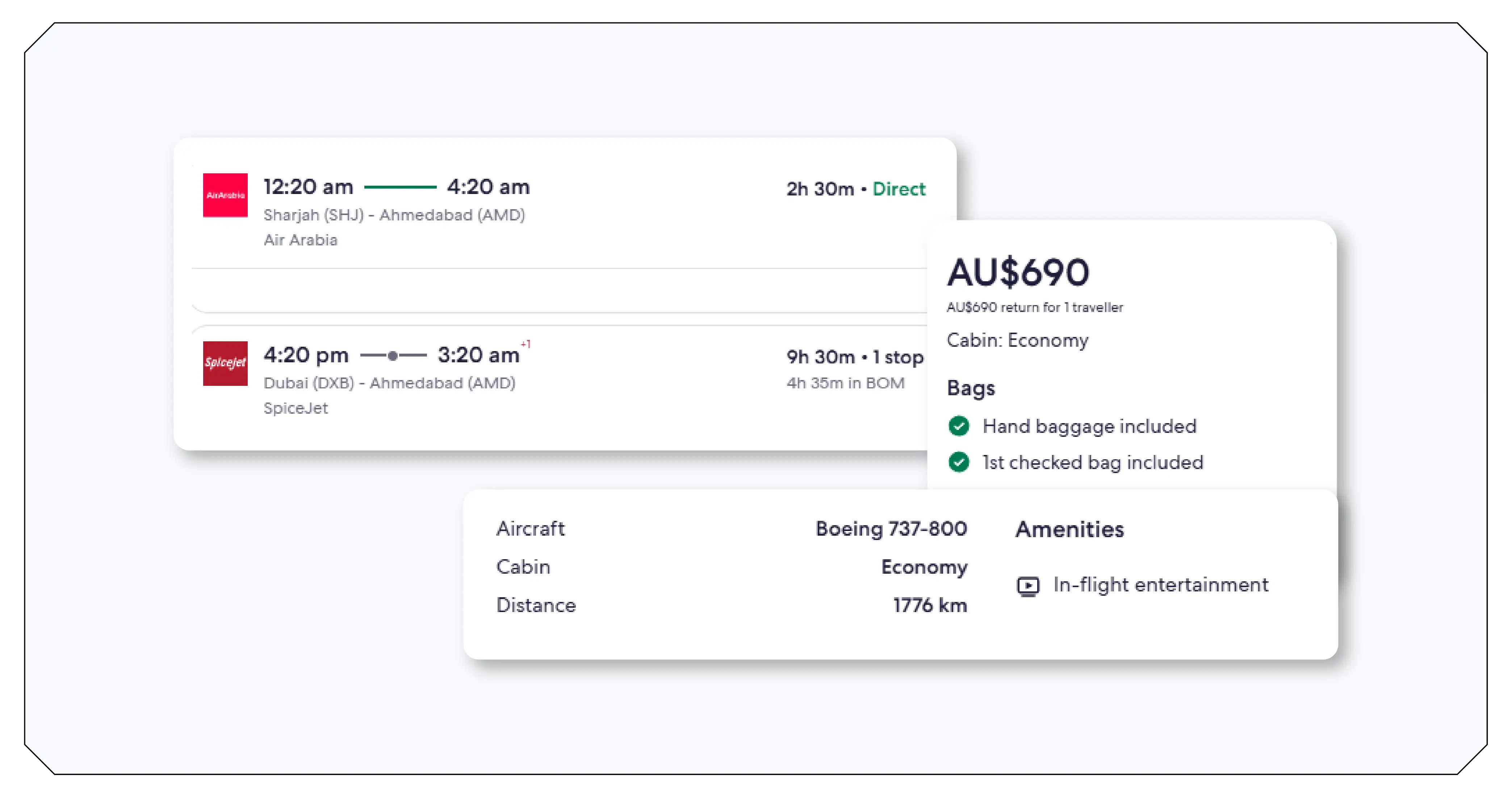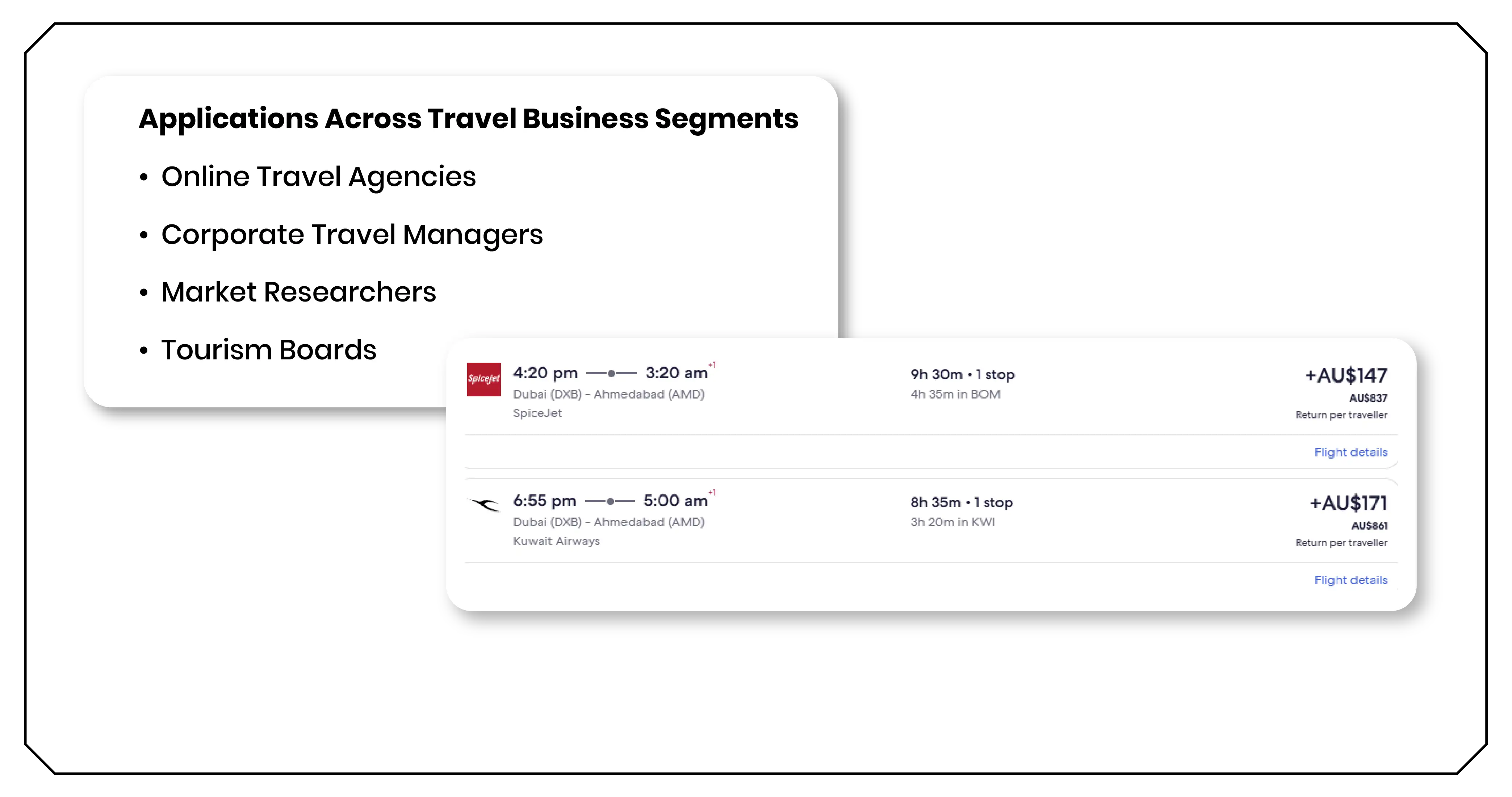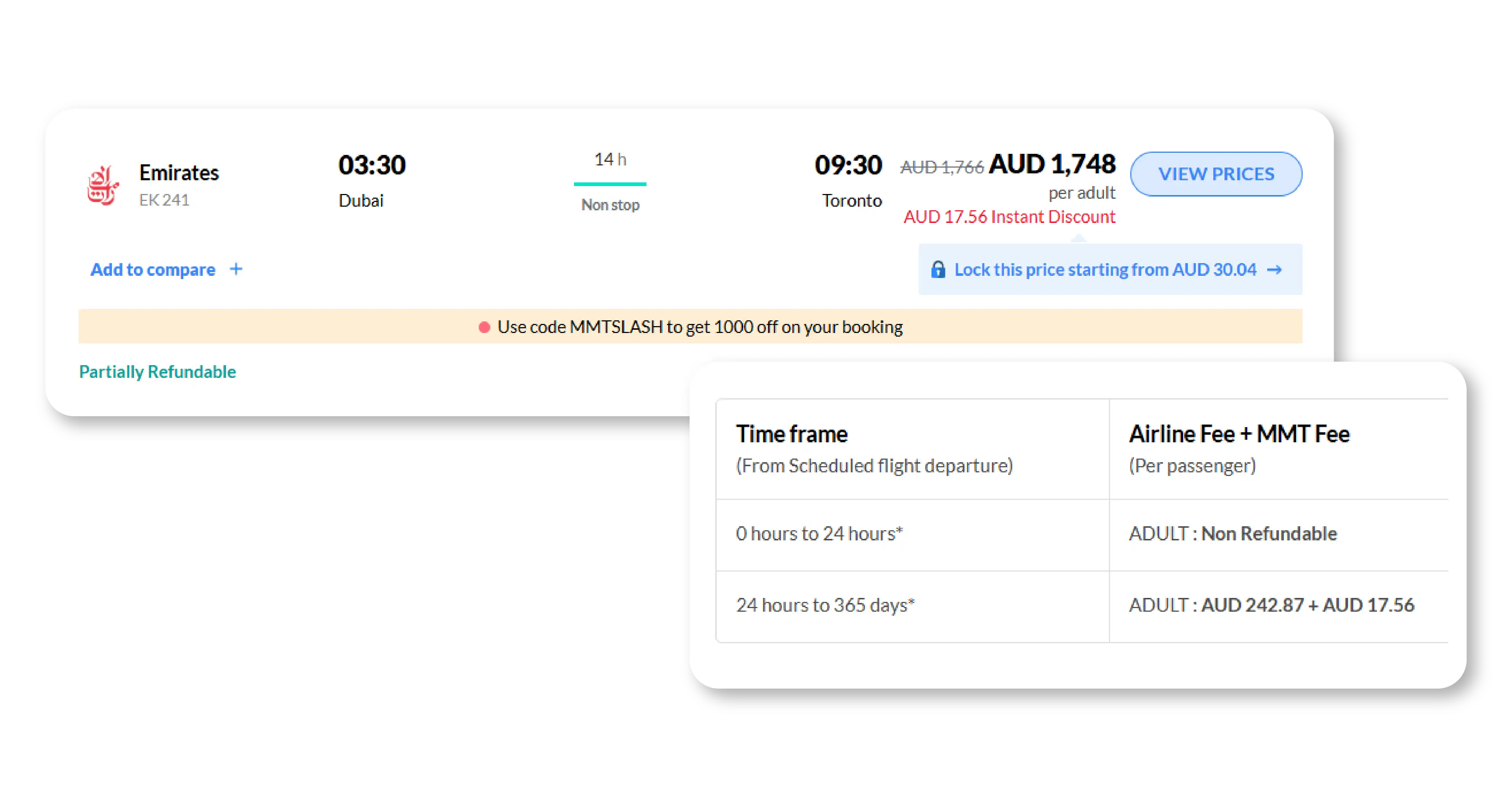Why Should Travel Agencies Extract Flight Ticket Price Data from Expedia?

Introduction
In today’s competitive aviation ecosystem, the need to Extract Flight Ticket Price Data from Expedia has emerged as a critical practice for travel platforms, agencies, and analytics firms. Expedia, being one of the largest online travel agencies globally, offers a comprehensive range of domestic and international flights. Travelers increasingly demand real-time price transparency and intelligent booking options, making it imperative for travel professionals to monitor fare dynamics continuously. Leveraging Airline Data Scraping Services, companies can access structured datasets on flight schedules, pricing fluctuations, and availability. This ensures they remain competitive, make informed recommendations, and deliver optimal travel experiences.
With advanced tools to Scrape Expedia flight ticket pricing, travel platforms gain unprecedented visibility into dynamic fare changes, enabling proactive strategy formulation, pricing optimization, and targeted marketing campaigns. By combining data from Expedia with analytics, agencies can uncover trends in route popularity, peak booking times, and seasonal pricing, which form the backbone of intelligent travel decision-making.
The Importance of Flight Ticket Price Data
Airfare is no longer static. Airlines adjust pricing frequently based on demand, fuel prices, booking windows, and competitive actions. For travel businesses, accessing Expedia ticket price data offers several advantages. Agencies and OTAs can optimize offerings by monitoring pricing shifts, while individual travelers can benefit from predictive insights for booking at the best rates.
Integrating data into analytics platforms enables the creation of Expedia Global Flight Prices Dataset, allowing stakeholders to examine macro-level trends across regions, routes, and carriers. These datasets can highlight historical fare patterns, promotional cycles, and booking behaviors, which are crucial for both operational planning and marketing initiatives.
Moreover, data insights empower travel platforms to implement dynamic fare recommendations. By evaluating Expedia’s fluctuating pricing, companies can adjust their own offerings, provide alerts to customers, and even forecast the probability of fare drops or increases on key routes. This intelligence also supports competitor analysis, helping agencies remain competitive in a constantly changing market.
How Expedia Data Enhances Travel Planning?

Expedia hosts millions of flight options, connecting users to domestic and international airlines. For travel agencies and platforms, Web scraping Expedia flight price trends provides real-time insights into these offerings. Through structured data collection, agencies can monitor fare variations, seating classes, baggage fees, and route popularity.
Key benefits of leveraging Expedia flight data include:
- Dynamic Pricing Analysis: Track real-time fare shifts for accurate recommendations.
- Route Optimization: Identify profitable or high-demand routes for promotional campaigns.
- Booking Window Insights: Determine the best times to purchase tickets for cost savings.
- Competitor Benchmarking: Compare pricing across airlines and adjust service offerings accordingly.
By applying machine learning to Expedia data, platforms can even predict pricing trends, enhancing their predictive capabilities and offering travelers a more informed booking experience.
Scrape Expedia Flight Ticket Pricing for Real-Time Advantage
Travelers and agencies alike are increasingly reliant on real-time pricing information. Expedia airline ticket price intelligence allows stakeholders to anticipate fare changes, understand market dynamics, and react quickly to sudden promotions or price drops. This is particularly relevant in markets with high demand volatility, such as seasonal tourist destinations or business-heavy routes.
Real-time monitoring ensures that agencies can:
- Notify customers of price reductions immediately.
- Launch flash deals and promotional campaigns based on data.
- Adjust corporate travel bookings to minimize costs.
- Predict booking surges and allocate inventory accordingly.
This granular visibility into fare fluctuations provides a decisive edge, especially in markets where even minor differences in pricing can influence booking behavior.
Extracting Expedia Flight Prices and Schedules
Structured extraction of flight schedules and prices is essential for creating actionable datasets. Extract Expedia flight price comparison helps platforms consolidate multi-airline fares, visualize trends, and offer customers transparent pricing. By scraping Expedia’s database, agencies can access detailed information including:
- Departure and arrival times for each route.
- Available seating classes and fares.
- Seasonal pricing patterns.
- Airline-specific promotions and bundled offers.
These datasets form the foundation for predictive analytics and enable automated tools to offer price alerts, trip suggestions, and fare forecasts. By combining fare data with historical trends, platforms can also determine optimal booking periods, helping customers save money while ensuring profitability for the agencies themselves.
Leveraging Flight Price Data Intelligence
Travel agencies increasingly rely on Flight Price Data Intelligence to make informed decisions regarding pricing, promotions, and route strategy. Expedia fare scraping helps track competitive pricing, enabling platforms to position themselves effectively in the market.
For example, by monitoring price shifts across multiple airlines on similar routes, agencies can identify underpriced tickets or premium opportunities for upselling services like baggage fees or seat selection. Integrating Expedia fare data into business intelligence dashboards allows decision-makers to:
- Visualize daily, weekly, and monthly fare fluctuations.
- Compare multiple airlines’ pricing for the same routes.
- Detect sudden promotional campaigns or price anomalies.
- Align travel packages with customer expectations and market trends.
Data intelligence ensures that both travelers and agencies can make data-driven decisions, reducing uncertainty and increasing satisfaction.
Web Scraping for Airline Trend Forecasting
The combination of scraping techniques and trend forecasting enables agencies to understand Expedia flight price data monitoring across different markets. Airlines often implement dynamic pricing models, adjusting fares multiple times daily. Real-time access to Expedia pricing ensures agencies remain proactive rather than reactive.
Key forecasting insights derived from web scraping include:
- Peak travel periods and demand surges.
- Route-specific fare volatility.
- Impact of holidays, events, and corporate travel on pricing.
- Emerging trends in airline promotions or loyalty programs.
These insights empower travel platforms to offer optimized travel packages, accurate fare alerts, and predictive booking options, giving them a competitive edge in customer acquisition and retention.
Global Flight Schedule Integration
Integrating Expedia fare data with the Expedia Flight Schedules Dataset allows agencies to monitor route connectivity, layovers, and total travel durations. This is particularly valuable for multi-leg journeys or international trips where customers seek the most convenient options at the best prices.
By combining flight schedules with fare data, travel platforms can:
- Optimize multi-leg itinerary pricing.
- Recommend alternative routes to reduce travel costs.
- Identify gaps in route availability for expansion or marketing focus.
- Monitor competitors’ route strategies and seasonal changes.
This integration ensures comprehensive visibility into both cost and convenience, enabling smarter travel planning for customers.
Enhancing User Experience with Predictive Pricing Tools
Travelers today expect platforms to provide more than just a booking interface—they demand actionable insights. By applying analytics to Global Flight Price Trends Dataset, agencies can offer predictive recommendations, highlighting the best time to book, potential fare drops, and cost-saving alternatives.
These predictive tools not only improve user experience but also increase engagement and conversion rates. Travelers trust platforms that provide intelligent guidance, while agencies benefit from higher booking volumes and repeat customers. Expedia fare data, when processed through advanced analytics, becomes a strategic asset rather than a simple price reference.
Real-Time Monitoring for Competitive Advantage
Continuous monitoring of Expedia fares ensures agencies maintain a competitive intelligence advantage. This includes tracking changes across domestic and international routes, observing competitor promotions, and detecting new pricing strategies. Real-time fare scraping allows for rapid adjustments to recommendations, ensuring customers always receive the most accurate and cost-effective options.
Travel platforms can also implement automated alerts for sudden fare reductions or flash sales. These instant notifications increase engagement and improve customer satisfaction by enabling immediate action. Agencies that leverage these insights can maximize conversions and maintain leadership in a crowded travel marketplace.
Applications Across Travel Business Segments

- Online Travel Agencies (OTAs): Leverage Expedia fare scraping to offer price comparisons, bundled services, and targeted promotions.
- Corporate Travel Managers: Optimize budgets with predictive fare insights and strategic booking recommendations.
- Market Researchers: Analyze demand patterns, route popularity, and promotional effectiveness across airlines.
- Tourism Boards: Utilize fare trends to design campaigns for seasonal travel peaks and regional tourism promotion.
- Airlines: Benchmark pricing strategies against competitors and adjust inventory and promotions based on insights.
By addressing these segments, Expedia fare data becomes a vital tool for operational efficiency, revenue growth, and strategic decision-making.
Challenges in Expedia Flight Data Scraping

Despite its advantages, scraping Expedia data comes with challenges:
- Dynamic Pricing Models: Frequent fare changes require robust scraping pipelines to maintain accuracy.
- Anti-Bot Mechanisms: Expedia employs sophisticated measures to prevent automated data extraction, requiring adaptive scraping strategies.
- Data Volume: Millions of flight records across regions necessitate efficient storage and processing capabilities.
- Compliance: Ensuring ethical and legal scraping practices is crucial to avoid violations of terms of service.
Addressing these challenges ensures that extracted data remains reliable, timely, and actionable for all stakeholders.
Technologies Powering Expedia Fare Data Scraping
Modern scraping solutions utilize advanced automation, APIs, and machine learning to extract and process fare data efficiently. Key technologies include:
- Automated Crawlers: Collect flight listings, fares, schedules, and seat availability.
- Data Cleaning Tools: Filter irrelevant or duplicate entries for accuracy.
- Normalization Techniques: Adjust pricing for taxes, fees, and promotions.
- Data Storage and API Access: Ensure secure, scalable storage and easy access.
- Analytics and Visualization: Turn raw data into actionable insights through dashboards.
These technologies transform Expedia fare data into a strategic asset for agencies and travel platforms.
Future of Airline Data Intelligence
The travel industry is rapidly moving toward predictive and AI-driven planning. Real-time Expedia airfare price data monitoring will enable smarter booking recommendations, automated alerts, and personalized travel suggestions.
By analyzing historical and current pricing trends, agencies can forecast fare surges, anticipate demand spikes, and optimize promotional strategies. Integrating this intelligence with global schedules and competitor monitoring ensures comprehensive insights into the travel ecosystem, making data-driven decision-making a competitive differentiator.
Conclusion
In a world where pricing transparency, predictive insights, and operational efficiency are crucial, Expedia Airport Amenities Dataset emerges as an indispensable tool. Agencies and travel platforms leveraging Expedia airfare tracking for competitive research can:
- Offer timely fare alerts and predictive booking recommendations: Ensure travelers receive optimal pricing guidance.
- Optimize pricing strategies based on competitive insights: Stay ahead in dynamic fare markets.
- Enhance traveler trust through transparent, data-driven guidance: Improve user satisfaction and loyalty.
- Forecast demand and plan promotions intelligently: Maximize revenue and resource allocation.
- Integrate with broader datasets to understand market dynamics and seasonal trends: Achieve a holistic view for strategic planning.
Finally, incorporating Expedia Price Trends Dataset ensures that agencies remain agile, customer-focused, and ahead of market shifts in the global travel landscape.
Ready to elevate your travel business with cutting-edge data insights? Scrape Aggregated Flight Fares to identify competitive rates and optimize your revenue strategies efficiently. Discover emerging opportunities with tools to Extract Travel Website Data, leveraging comprehensive data to forecast market shifts and enhance your service offerings. Real-Time Travel App Data Scraping Services helps stay ahead of competitors, gaining instant insights into bookings, promotions, and customer behavior across multiple platforms. Get in touch with Travel Scrape today to explore how our end-to-end data solutions can uncover new revenue streams, enhance your offerings, and strengthen your competitive edge in the travel market.